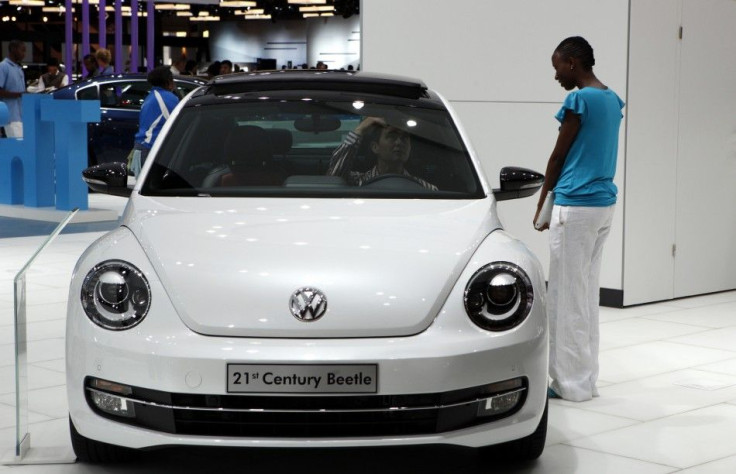BMW, Volkswagen post robust October growth

German carmakers BMW (BMWG.DE: Quote, Profile, Research, Stock Buzz) and Volkswagen (VOWG_p.DE: Quote, Profile, Research, Stock Buzz) reported robust vehicle sales growth in October as demand from abroad offset weak a slowdown in Western Europe.
European car sales figures reflected weak consumer confidence in the crisis-hit region, with German new car registrations up by only 1 percent and sales dropping in markets such as Spain and Italy.
So far, strong sales abroad have helped German carmakers offset somewhat the slump in western Europe.
BMW, the world's largest maker of luxury cars, sold 8.3 percent more cars in October than in the same period a year earlier, helped by a 33.5 percent gain in sales in China to 18,346 vehicles, the company said on Tuesday.
The company has said that it expects growth in China, which accounted for about 13 percent of sales in October, to slow from the breakneck pace of recent years, but said it sees the premium segment growing faster than the market for mass-market vehicles.
In the United States, BMW sold 17.5 percent more cars in October, accounting for a fifth of overall sales.
It said it was well on its way to reach its target of selling a record number of 1.6 million vehicles this year.
BMW's sales growth still fell short of Volkswagen's premium brand Audi, which reported on Monday that it sold almost 24 percent more cars in October, helped by a 62 percent jump in China sales.
Growth of mass-market car brand VW was slower but still bucked a weak European trend as growth in China and the United States boosted October sales by 10.4 percent.
The brand Volkswagen cars are still on a solid growth path in terms of sales, Volkswagen sales chief Christian Klingler said in a statement.
Car sales in the United States grew 7.5 percent in October, with the Volkswagen group posting the biggest year-on-year gains, at 40 percent.
We are observing the current development on global markets very closely due to economic uncertainty, Klingler added.
© Copyright Thomson Reuters 2024. All rights reserved.





















